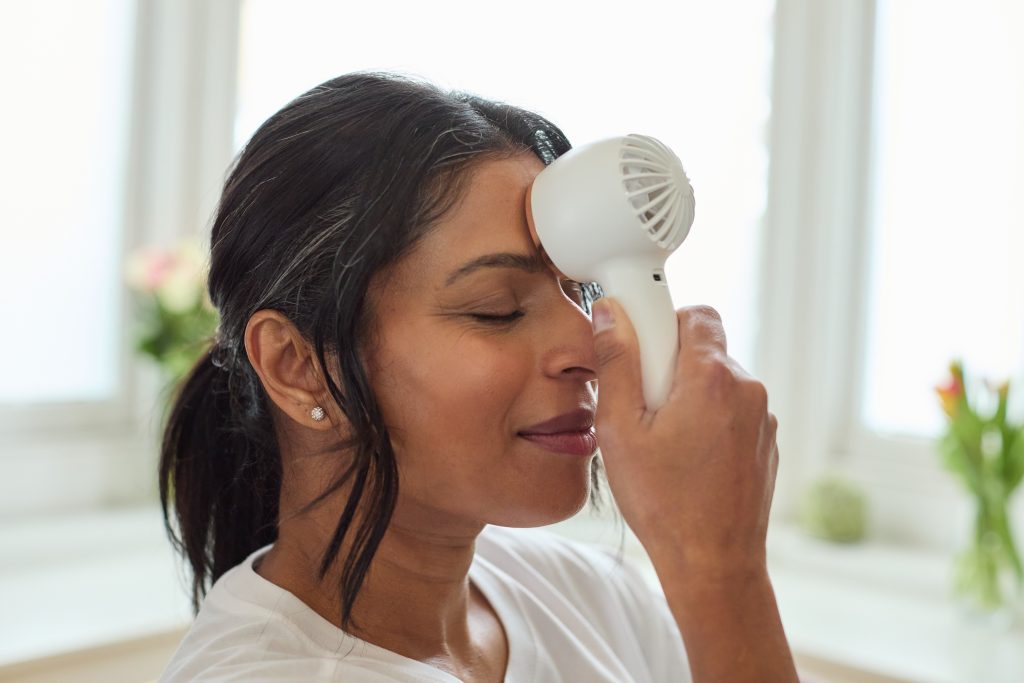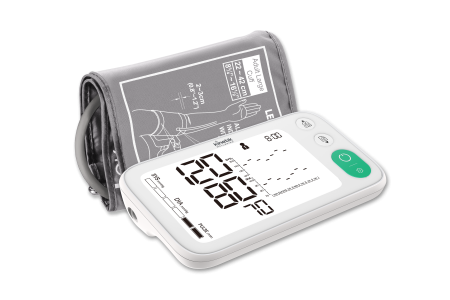
- How changes in hormones impacts your body:
- Disrupted Thermoregulation and Sleep Patterns
- Changes in Body Composition and Metabolism
- Bone Strength and Cardiovascular Health
- Urogenital Health and Sexual Wellbeing
- Cognitive and Emotional Impact
- Skin and Hair Changes
- Supporting Your Body Through the Transition
- Menopause is a great time to focus on your overall wellbeing and look at:
Written by Dr Serena Jones, GP
 Dr Serena graduated from Manchester University in 2008 (MBChB).
Dr Serena graduated from Manchester University in 2008 (MBChB).
She also holds the MRCGP, DRCOG and DFSRH.
Menopause is a natural stage of life, but that doesn’t mean it’s always straightforward. It usually occurs between the ages of 45 and 55 and marks the end of menstrual periods and fertility. What many women don’t expect, though, is just how many areas of the body are affected — often all at once, and maybe not in a ‘typical’ way.
Most symptoms are linked to falling levels of oestrogen, a hormone that plays a role in everything from bone health to brain function. As levels decline, your body goes through a series of adjustments that can affect both how you feel and how your body functions day to day.
How changes in hormones impacts your body:
Disrupted Thermoregulation and Sleep Patterns
Many women experience sudden waves of heat (hot flushes) and night sweats, which can be more than just uncomfortable — they can severely disrupt sleep and leave you fatigued and foggy during the day. This lack of good quality rest can impact concentration, emotional balance, and physical performance.
Changes in Body Composition and Metabolism
Falling oestrogen levels affect how your body stores fat and builds muscle. A slower metabolism and shift in fat distribution (particularly around the abdomen) can increase the risk of metabolic conditions, including type 2 diabetes and cardiovascular disease.
Bone Strength and Cardiovascular Health
One of oestrogen’s key protective roles is maintaining bone density and supporting vascular flexibility. After menopause, women face a higher risk of osteoporosis and heart disease. Without intervention, these risks can have long-term consequences — making exercise, nutrition, and lifestyle habits more crucial than ever.
Urogenital Health and Sexual Wellbeing
The drop in oestrogen also affects the skin in the vaginal and urinary tracts. This can lead to discomfort, irritation, or increased risk of infection, which may influence intimacy and self-confidence. For some women, these changes are subtle but cumulative; for others, they can be deeply disruptive.
Cognitive and Emotional Impact
Many women feel they experience lapses in memory, difficulty focusing, or heightened anxiety and mood swings. These experiences aren’t just emotional or stress-related; they reflect the hormonal fluctuations happening in the brain. Left unaddressed, they can impact relationships, work performance, and overall quality of life.
Skin and Hair Changes
The skin loses elasticity and moisture more easily post-menopause and oestrogen supports collagen production, so hair may become thinner or more brittle. These changes can affect confidence.

Supporting Your Body Through the Transition
Menopause is a great time to focus on your overall wellbeing and look at:
- Balanced nutrition – Include sources of calcium, vitamin D, and plant oestrogens.
- Regular movement – Support bone, heart, and mental health with regular activity.
- Sleep hygiene – Keep a regular bedtime routine and manage factors like caffeine and screen time.
- Find Menopause-friendly products — Finding products that support menopause symptoms can be tough. That’s why we’ve partnered with GenM, whose MTick symbol makes it simple to spot menopause-friendly options.
Explore our Women’s Wellness range, featuring MTick-approved products like our Thermal Comforter and Cooling Comfort Fan — designed to help you through hot flushes and night sweats. - Monitoring your health – Keeping track of symptoms like blood pressure or sleep patterns can be helpful. Devices like the Kinetik Wellbeing Blood Pressure Monitors can support you in spotting trends and sharing accurate data with your GP.
- Professional Advice: Talking to your GP – If symptoms are affecting your quality of life, options like hormone replacement therapy (HRT) or other non-hormonal treatments may help.
Menopause affects everyone differently, but you don’t have to manage it alone. Understanding what’s happening in your body is a powerful first step — and support is out there when you need it.



